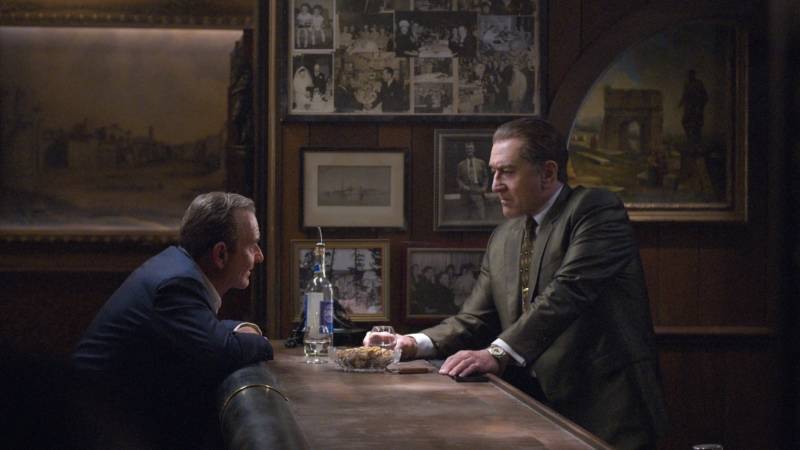Martin Scorsese has made so many terrific crime pictures that you would be forgiven for doubting whether he had another one in him. The great surprise of his haunting and elegiac new movie, The Irishman, is that it doesn’t play like a retread so much as a reckoning.
It reunites Scorsese with Goodfellas actors Robert De Niro and Joe Pesci, but while his earlier mob classic had an exhilarating energy, The Irishman is suffused with loss. It feels older, wiser and infinitely sadder. There are still wisecracks and double-crosses and whackings aplenty, but there’s no kicky thrill to the violence this time—just a harsh aftertaste of emptiness and futility.
Since the movie spans several decades and runs 3 1/2 hours, that’s admittedly a lot of futility. But The Irishman is a richly involving experience. Its measured pace is entirely gripping, and its gorgeous images are well worth seeing in a theater if you live near one of the few venues where it’s playing (before it hits Netflix on Nov. 27). On a big screen, you might notice some of the minor imperfections of the “digital de-aging” technology that Scorsese uses to make the actors look younger in different time frames, but you stop noticing them after a few moments as the illusion takes hold.
De Niro stars as Frank Sheeran, the Irishman of the title, and the movie is essentially his account of his life and crimes. Shortly before his death from cancer in 2003, Sheeran claimed that he had killed Teamsters boss Jimmy Hoffa, who had gone mysteriously missing in 1975. One of his former attorneys, Charles Brandt, reported that claim in his biography of Sheeran, I Heard You Paint Houses, which serves as the foundation for Steven Zaillian’s screenplay.
But Sheeran, narrating his story from a retirement home at the age of 82, has a lot to tell us before he gets to that point. He takes us back to the 1940s, when he was a Pennsylvania truck driver who managed to ingratiate himself with local mafioso Russell Bufalino, wonderfully played by Pesci in a long-overdue return to the screen.

9(MDAxOTAwOTE4MDEyMTkxMDAzNjczZDljZA004))

